
It’s perhaps unsurprising that Nikola Tesla and John Maynard Keynes foresaw a gradual disappearance of work when one considers what happened in the decades prior to their predictions. Between 1870 and 1930, the average weekly hours of a nonagricultural worker in the US fell by a quarter, from 59.5 to 44.5 (see Figure 1.1).
At the onset of the Industrial Revolution, the working week was as long as physically bearable. Survival was the primary motive for work for all but a fortunate few. That all began to change as industrialization brought immense advances in living standards. By the early 20th century, working hours were falling, allowing more workers to spend their time as they chose.
As growth decelerated in the West in the latter part of the last century, this trend began to taper, although it persists today. For instance, one study of time use in the UK found that average weekly leisure time increased by seven hours for men and five hours for women from 1961 to 2000. The average time spent caring for children also increased, by four hours a week for both men and women.
Rising prosperity has reduced the time that people need to spend working

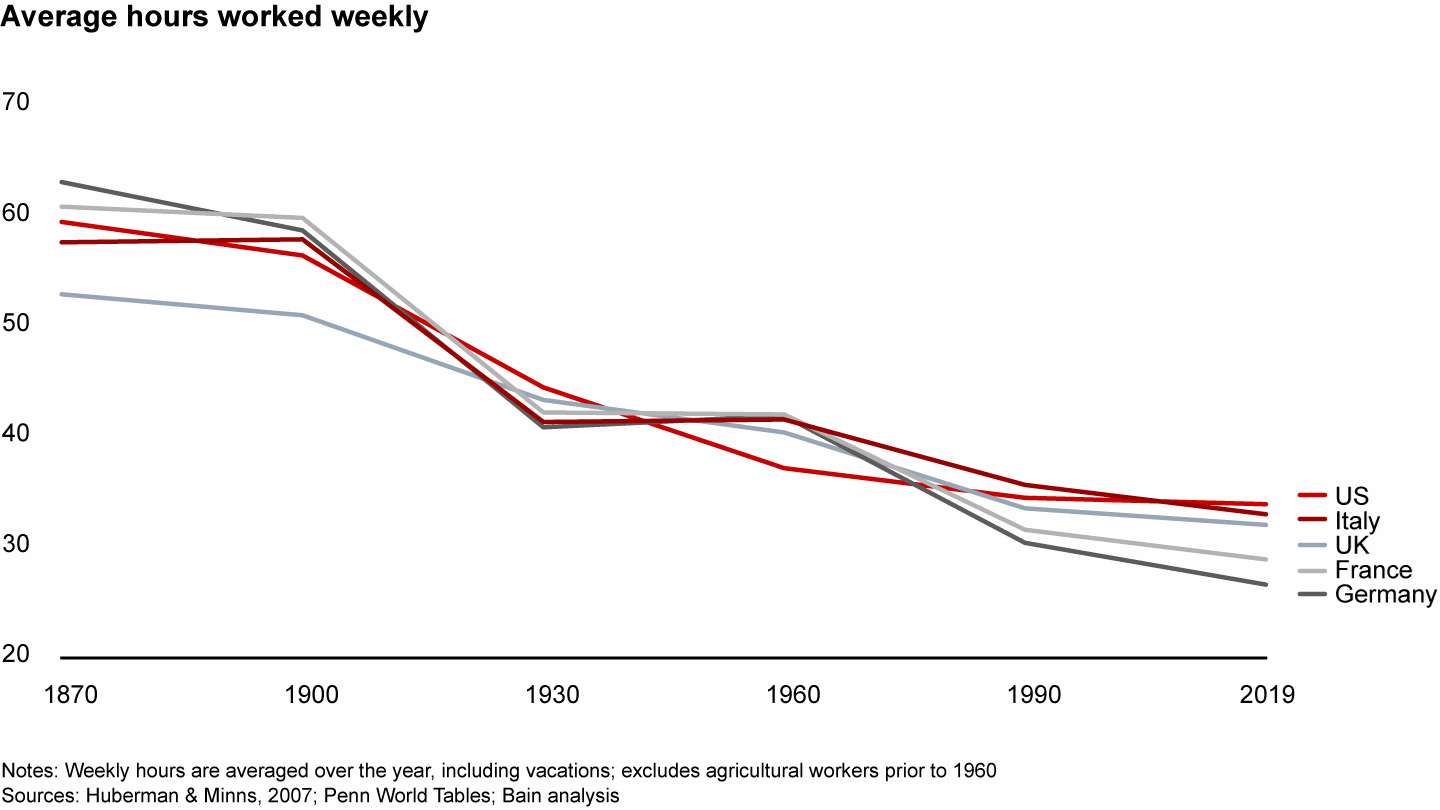
In addition, the subjective importance that we place on our jobs compared with other life factors has declined across successive generations. According to the World Values Survey, younger generations place a lower importance on work relative to leisure time compared with respondents in older generations who completed the survey at the same age (see Figure 1.2). The only outlier is Generation X—who were hit particularly hard by the 2007–09 financial crisis in terms of wealth and career prospects. We found a similar pattern in the importance of work compared with family.
The importance placed on work relative to leisure has declined across generations

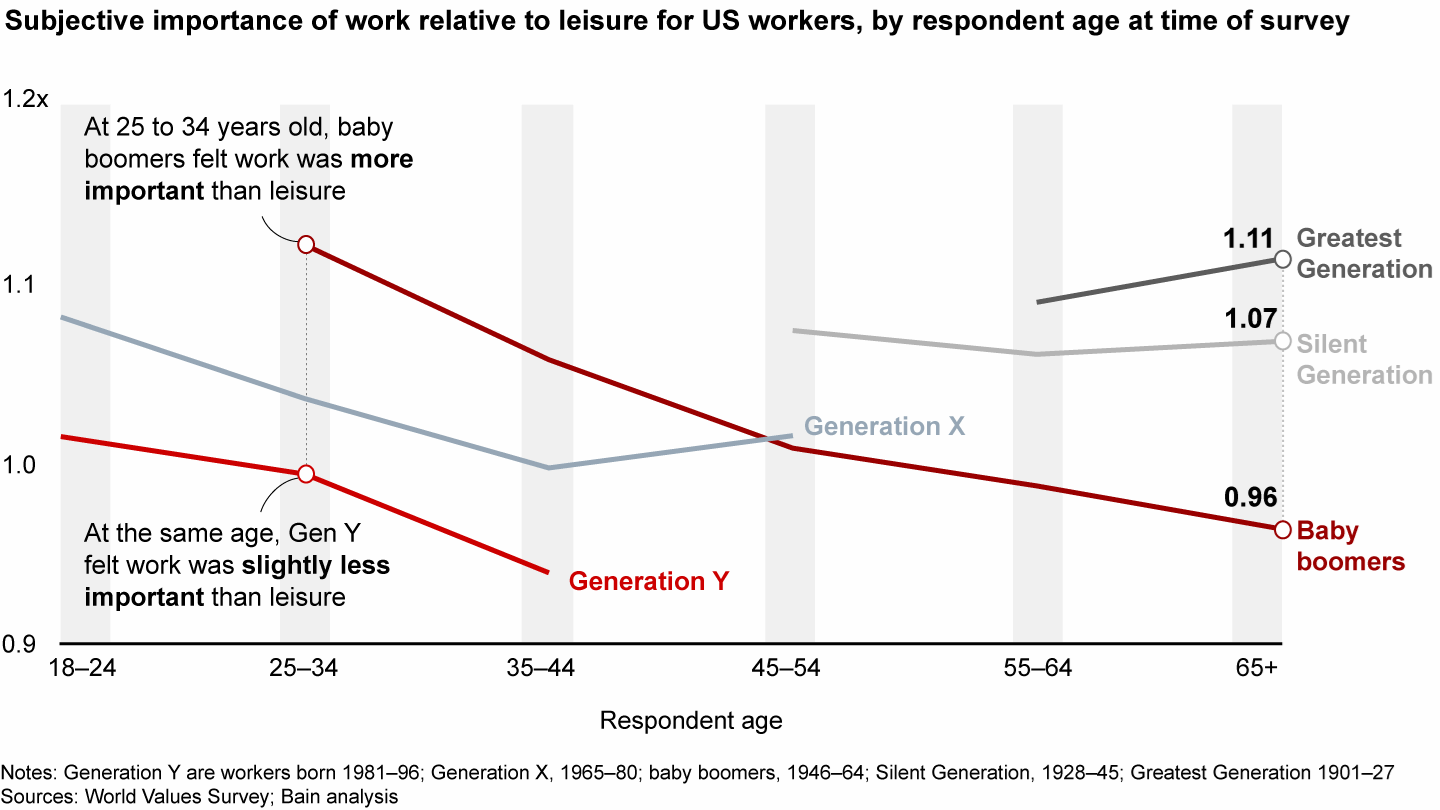
This trend is not confined to the West. In general, as countries grow their GDP, workers gain greater economic freedom to spend time on other pursuits (see Figure 1.3). For instance, workers in China and India are also starting to place less importance on work relative to leisure.
Hours of work tend to decline as countries become richer

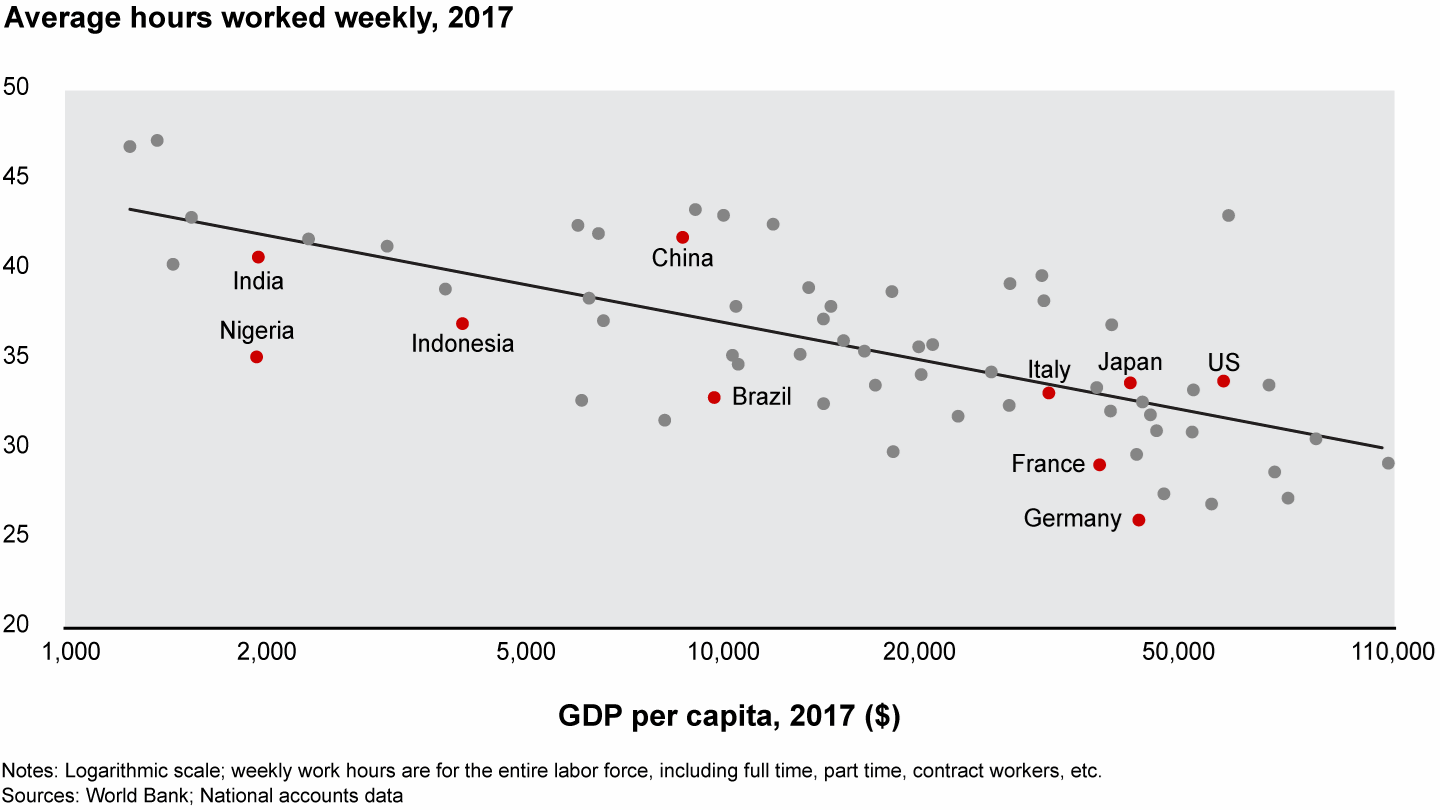
Does this mean that Tesla and Keynes were simply too early in their predictions of the demise of work? We expect not. As of 2017, only 28% of Americans said they would stop working altogether if they had enough money for the rest of their lives—down from 34% in 1995. As workers have become richer, they’ve recognized that a job can serve more than their basic economic needs. Globally, the richer a country, the lower the share of the population that believe a job is “just a way of earning money” (see Figure 1.4).
As incomes rise, our reasons for working extend beyond money

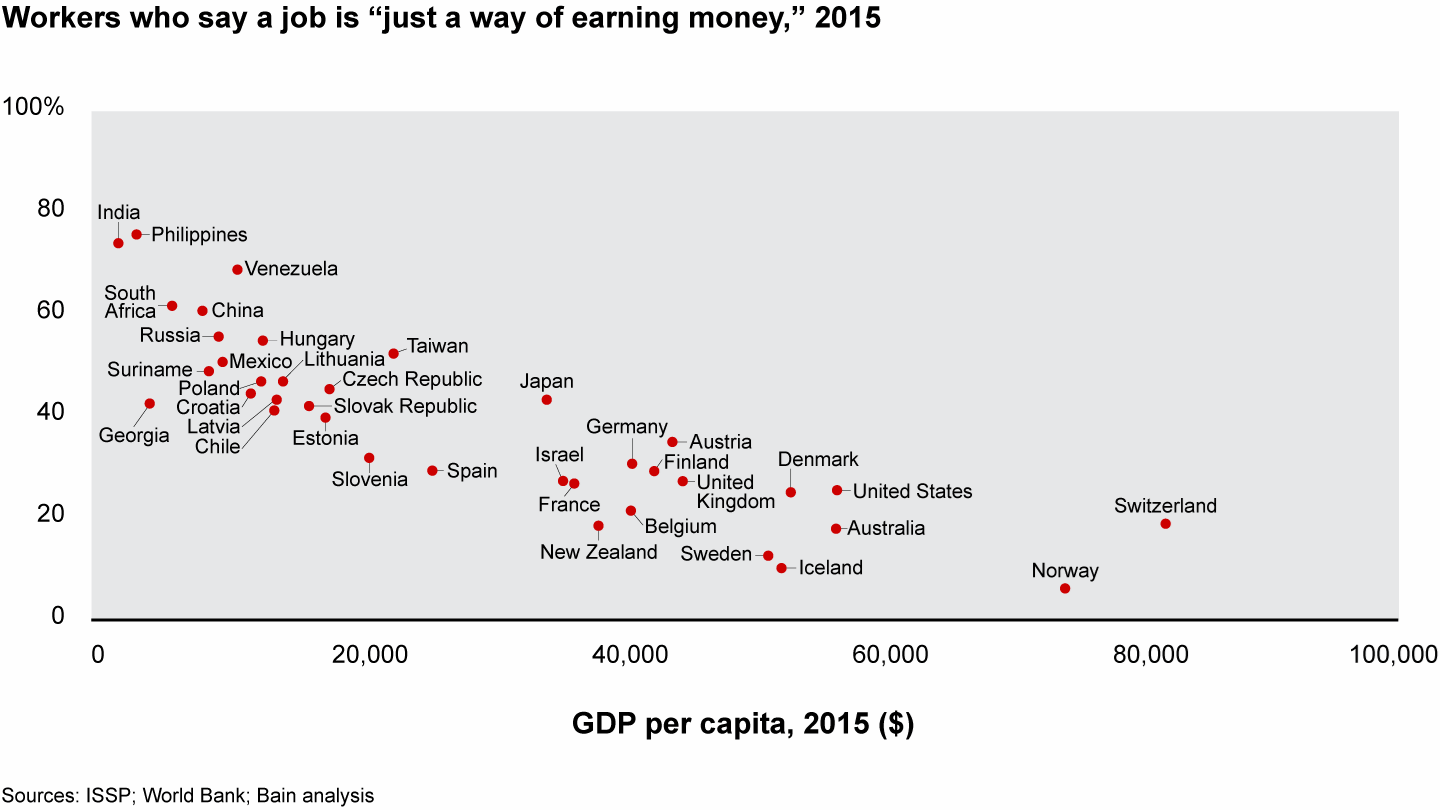
According to our survey, only 22% of workers globally rank compensation as the thing that matters most to them in a job (see Figure 1.5). This isn’t to say that people will accept a job without fair pay: Compensation still ranks higher than all other job attributes, including interesting work at 15% and an inspiring company at 5%. It also ranks in the top three factors for 56% of respondents. But it’s evident that a coin-operated view of workers, where firm leaders see employment as a purely financial transaction, underestimates the deeper human motivations for work. And dissatisfied workers rank compensation higher than satisfied workers, suggesting that money is more often a source of demotivation for workers who feel underpaid than it is a source of inspiration for others.
While workers rank compensation first over any other job attribute, it’s the top priority for one in five workers

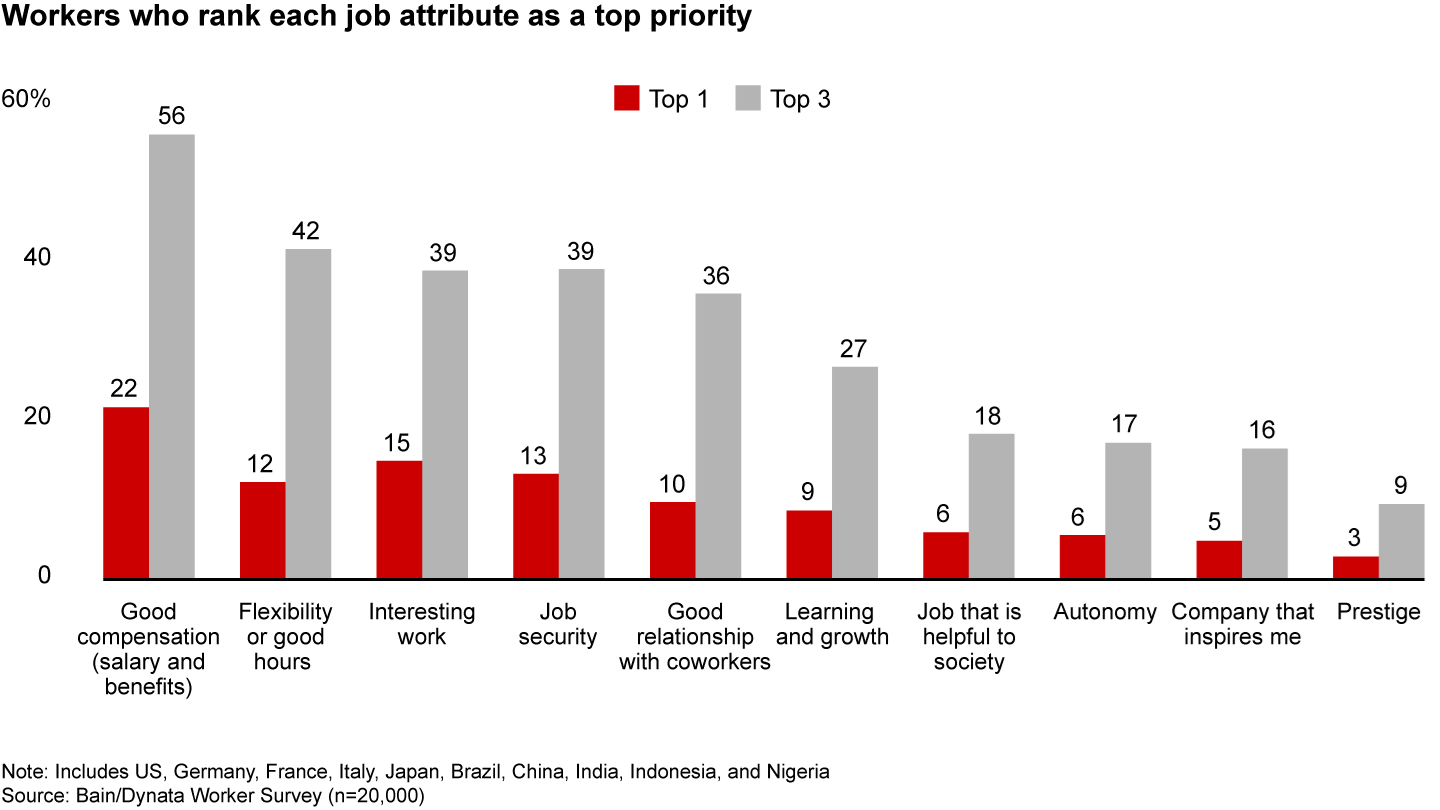
In rich countries, several social changes have likely broadened workers’ expectations around the needs a job should fulfill. As community institutions, such as sports clubs and volunteer associations, have declined in prominence, work has become a more important source of social connection. Similarly, as religious observance has fallen in the US and Europe, new generations of workers may have turned to their careers to provide a sense of higher purpose.
“In general, as countries grow their GDP, workers gain greater economic freedom to spend time on other pursuits.”
A shift in the nature of social class, which is now primarily reflected in one’s occupation, has also likely played a role in this change. Looking at the US, there’s been an inversion of the relationship between income and hours worked over the past century (see Figure 1.6). Far from the idle leisure class of bygone eras, the upper echelons of today’s society work the longest hours of all. Busyness is now a sign of status and importance. Those at the bottom of the income hierarchy work the least hours, as they are often unable to secure the stable full-time employment they desire (for more on this, see “Technological Change Is Blurring the Boundaries of the Firm”).
The relationship between income and number of working hours has flipped over the past century

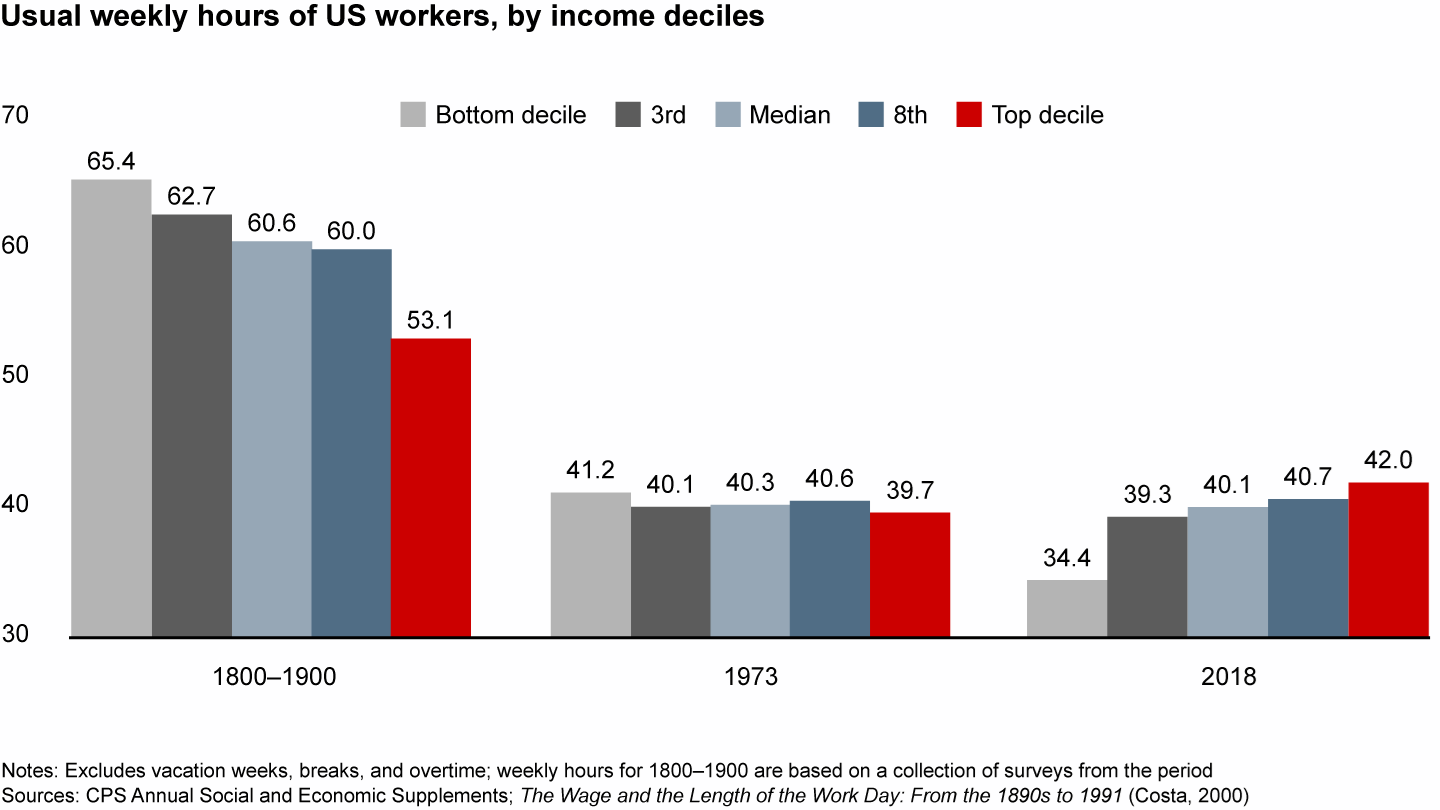
As the world has become richer, workers have increasingly shifted their focus from survival to meaning, with profound implications for how we think about work. Importantly, individuals can find a sense of purpose in many places, whether in a sense of achievement and upward mobility, mastery of a skill set, directly helping others, or simply being fully present in family life (for more, see the next chapter, "Beliefs about What Makes a 'Good Job' Are Diverging").

What Type of Worker Are You?
Six worker archetypes can help business leaders understand the messy world of individual personalities.

About the Research
Data powered by Dynata, a leading global first-party data and insights platform.






